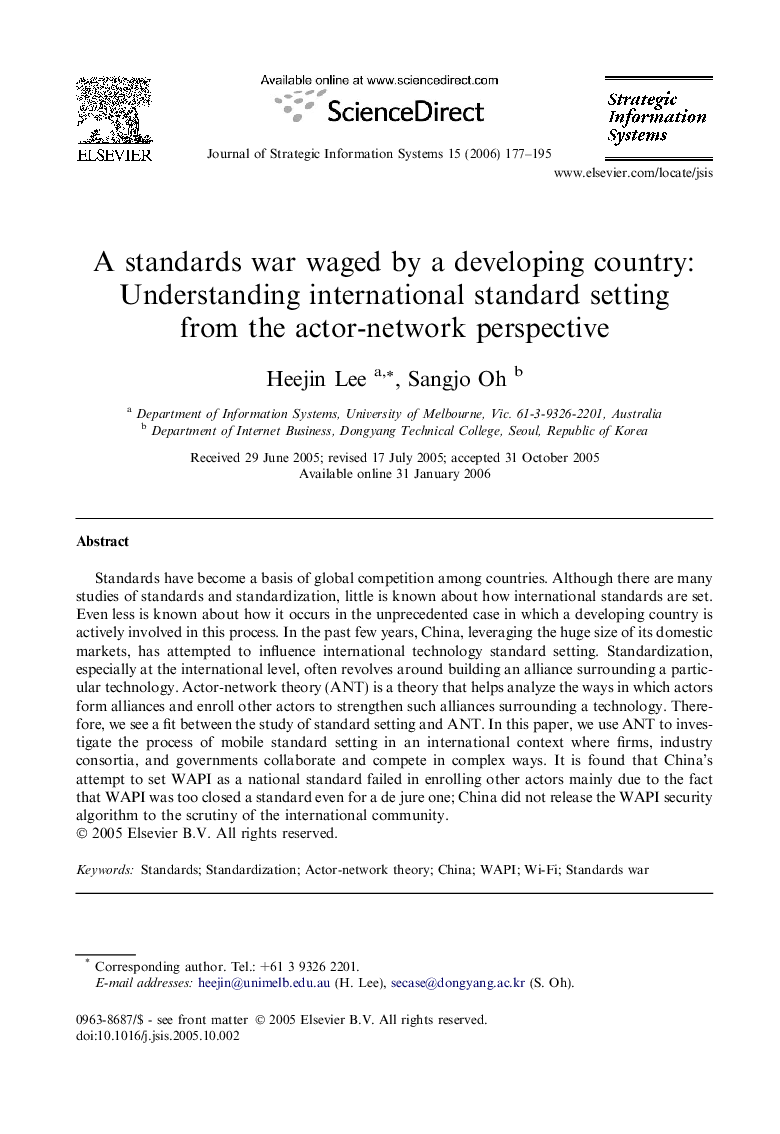| Article ID | Journal | Published Year | Pages | File Type |
|---|---|---|---|---|
| 556011 | The Journal of Strategic Information Systems | 2006 | 19 Pages |
Standards have become a basis of global competition among countries. Although there are many studies of standards and standardization, little is known about how international standards are set. Even less is known about how it occurs in the unprecedented case in which a developing country is actively involved in this process. In the past few years, China, leveraging the huge size of its domestic markets, has attempted to influence international technology standard setting. Standardization, especially at the international level, often revolves around building an alliance surrounding a particular technology. Actor-network theory (ANT) is a theory that helps analyze the ways in which actors form alliances and enroll other actors to strengthen such alliances surrounding a technology. Therefore, we see a fit between the study of standard setting and ANT. In this paper, we use ANT to investigate the process of mobile standard setting in an international context where firms, industry consortia, and governments collaborate and compete in complex ways. It is found that China’s attempt to set WAPI as a national standard failed in enrolling other actors mainly due to the fact that WAPI was too closed a standard even for a de jure one; China did not release the WAPI security algorithm to the scrutiny of the international community.
